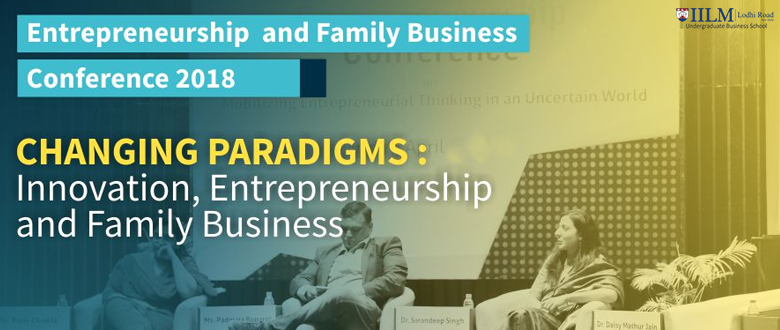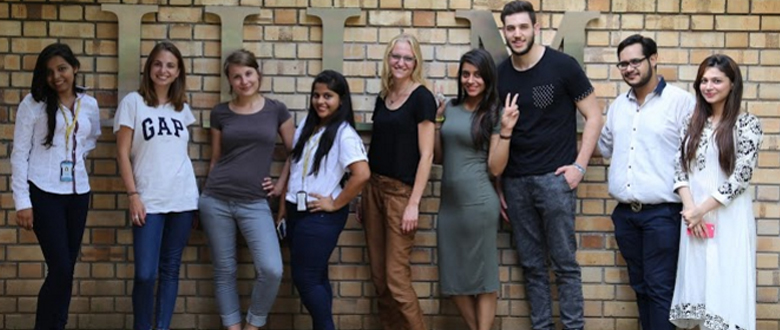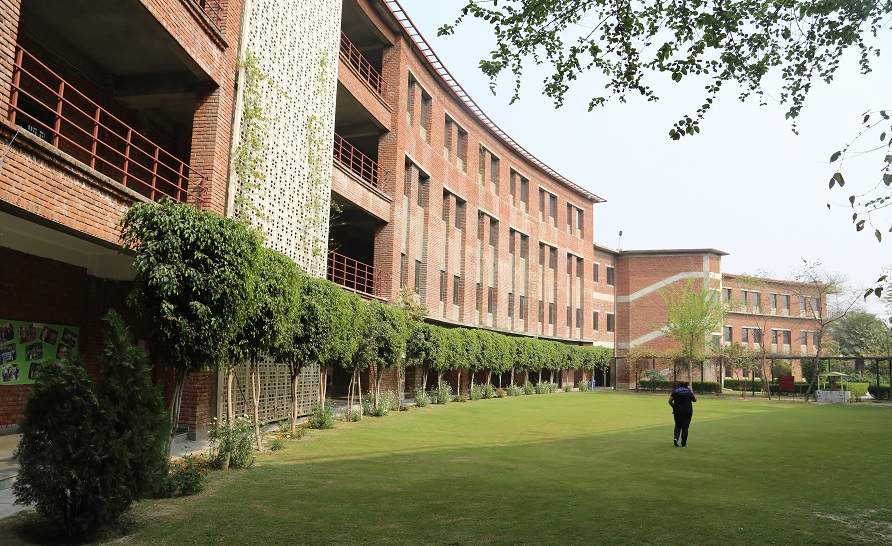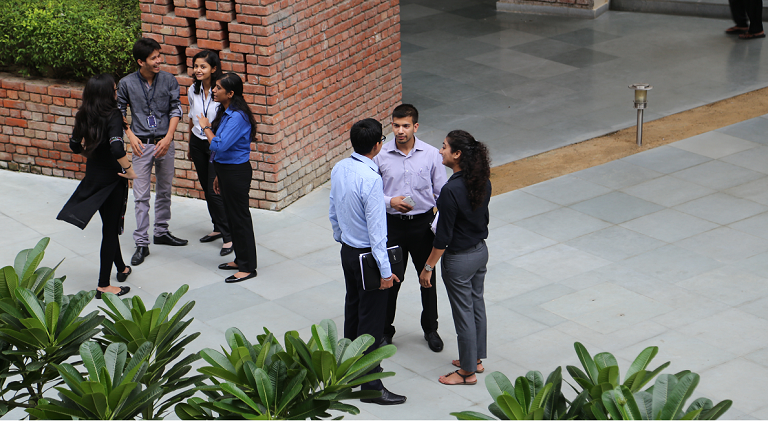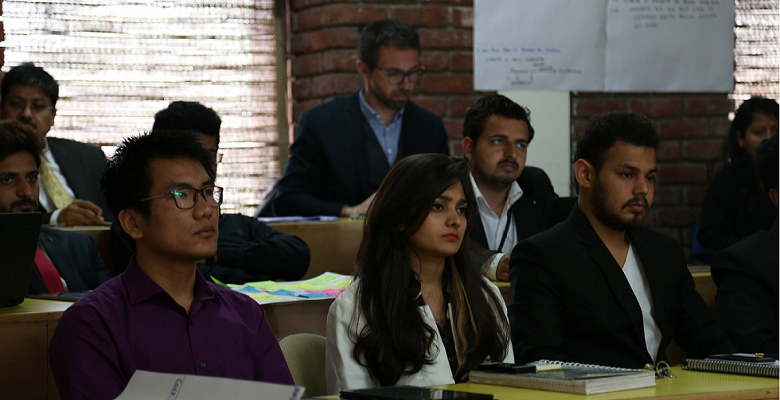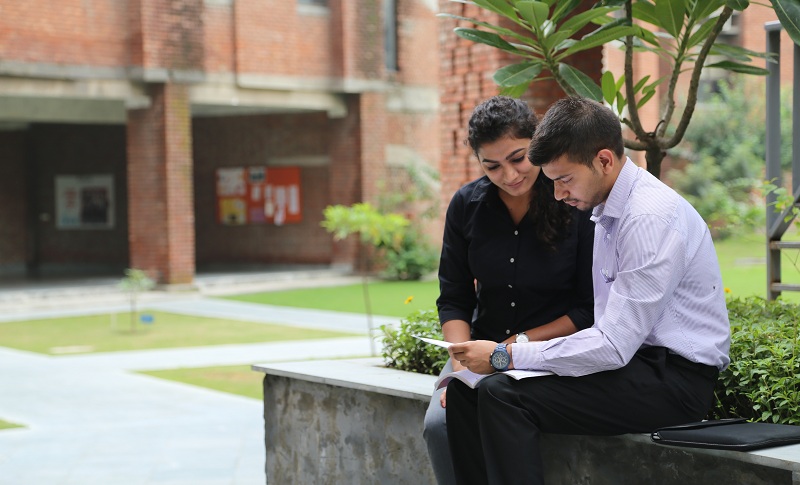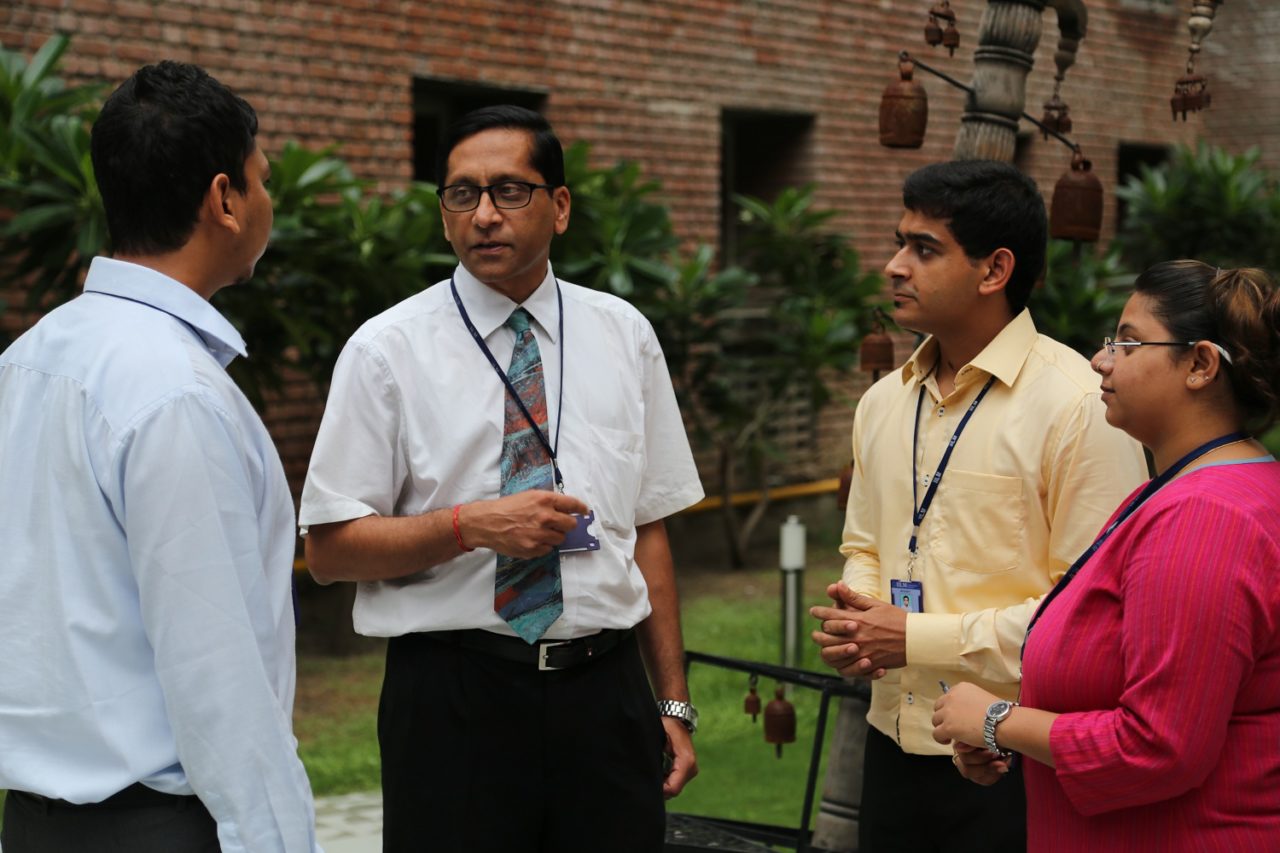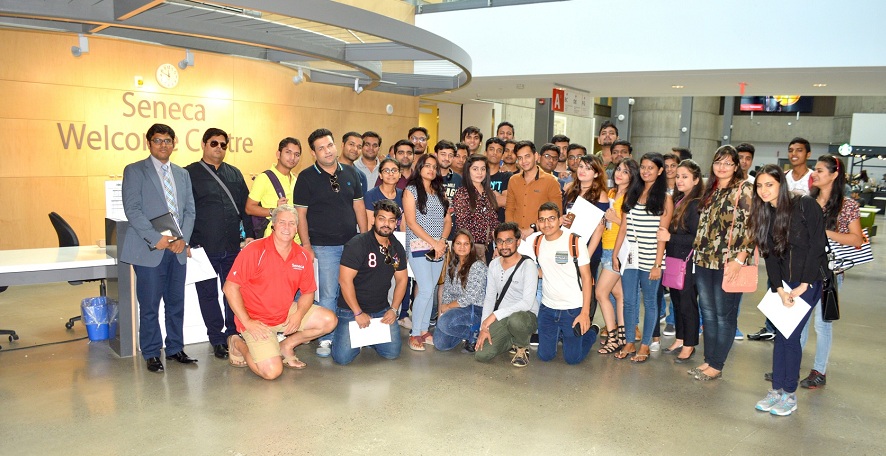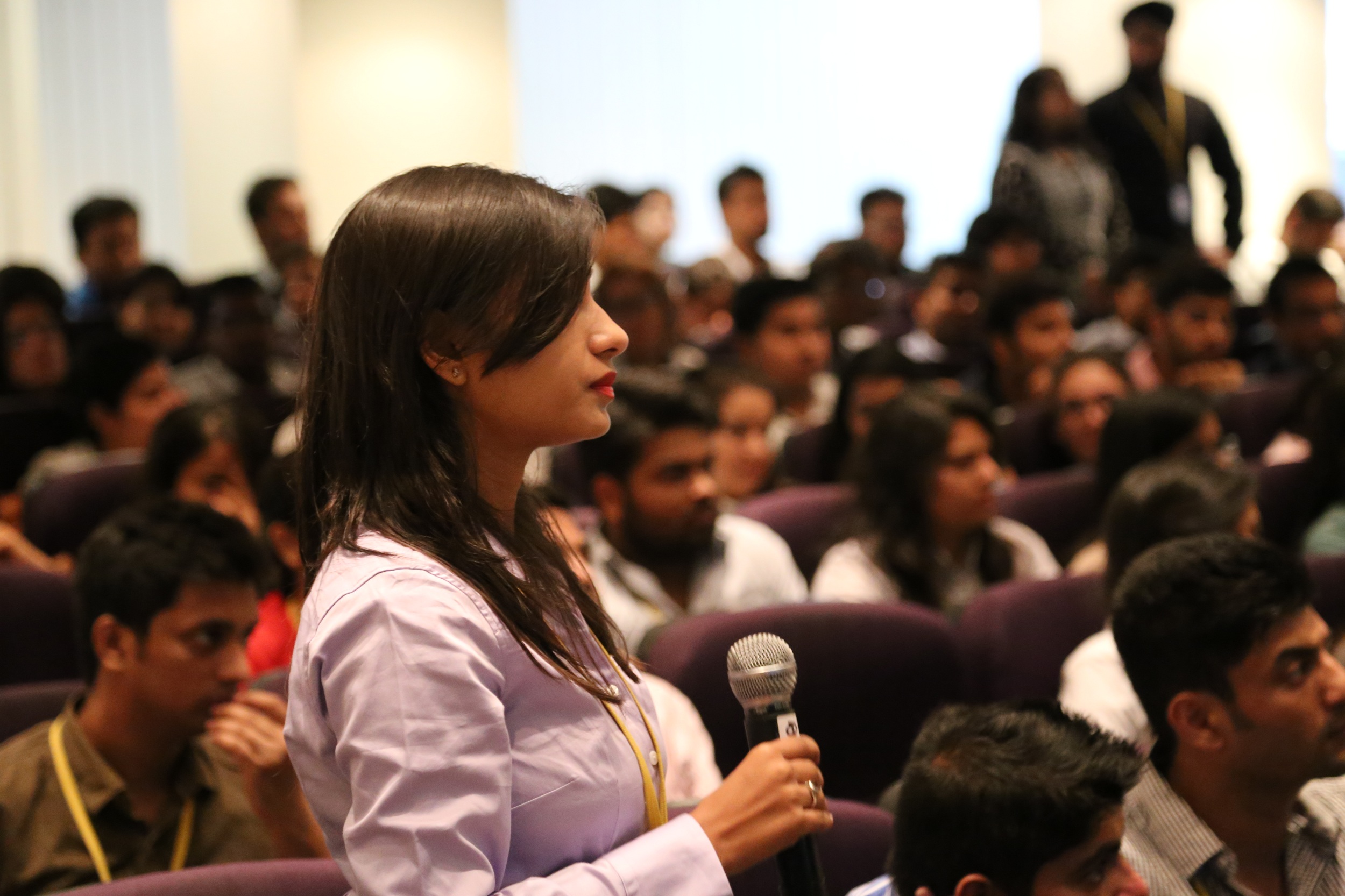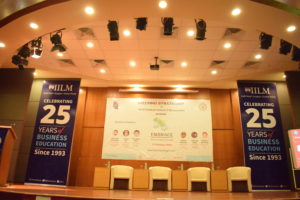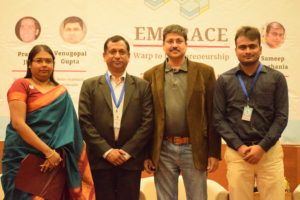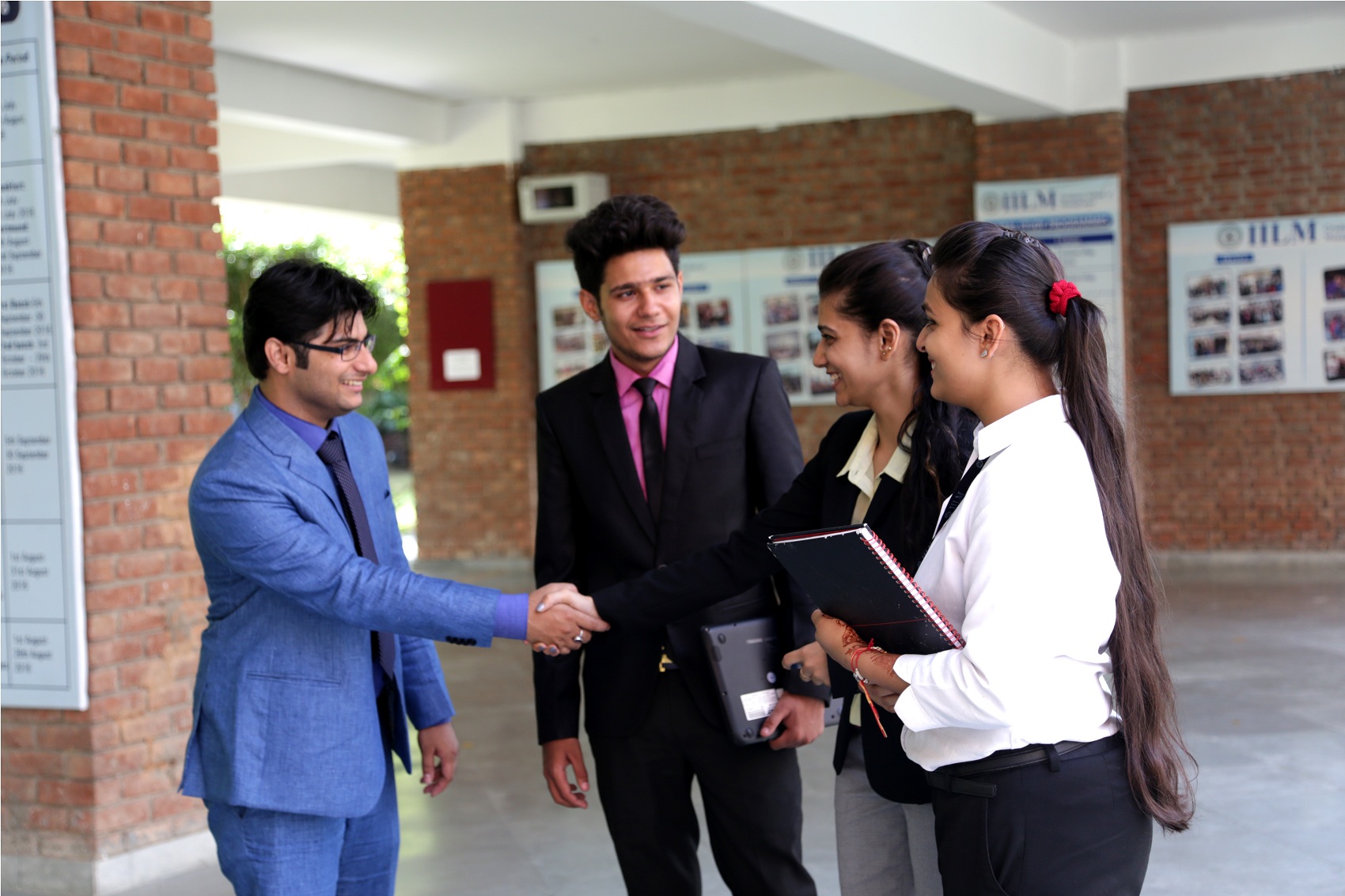INTERNATIONAL CONFERENCE ON OPERATIONS AND INFORMATION TECHNOLOGY 2018
BIG DATA ANALYTICS FOR THE DIGITAL ERA
On 24th February, 2018, IILM Graduate school of Management was privileged to host the International Conference on Operations and Information Technology. This write up captures the essence of the presentations, panel discussions, real world examples, interactive dialogue, and research papers at the conference on big data analytics for digital era.
INAUGURAL SESSION:
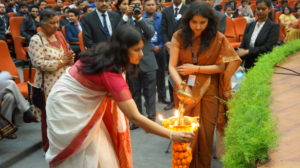
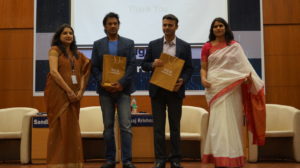
The Conference began with a Welcome Address by Dr. Taruna Gautam, Director, IGSM followed by an introduction to the Conference theme by Dr. Sandhya Rai. The keynote speakers to the conference were the very prominent Mr. Gaurav Diwan and Mr. Pankaj Krishna. The pace of the conference was set by our keynote speakers, with an apt introduction into Big Data Analytics. Mr. Diwan’s insight into Big Data was particularly invigorating. He stated that Big Data will change rapidly in recent times. There is a whole lot of information goes through networks with great intensity for which it is essential to manage data in value chain. Decision making as we know has been changing towards more of a business decision making.
Our next keynote speaker, Pankaj Krishna maintained the pace set to go on to say that data is a driving force in different sectors. Business exists for three factors and three factors only: Volume, Profitability and Image. Every single company is revolving around data whether it is agriculture, manufacturing, healthcare, telecom, food and beverages. And it is here that mathematics plays a key role in data analytics. All the work done uses mathematic algorithms. In India analytics is estimated to generate about 2.03 billion dollars in revenues.
SESSION 1: TECHNICAL SESSION
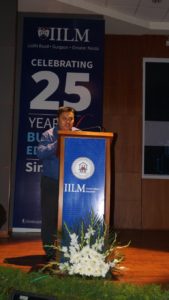
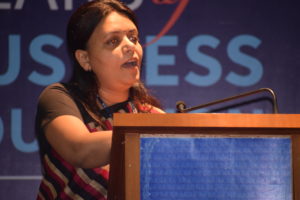
After the inaugural session, the conference proceeded to its first technical session with professors, industry personnel and even students presented their papers. It was Dr. Hemlata Bhatt with her “Big data trends-A Study of Self Service Analytics”, who started off the technical session. Her extensive research and presentation on Self service analytics yielded information such advanced visualization, freed data mash up, data architecture and predictive analysis. She concluded by stating that company people are dependent upon certain people and this software can help to reduce cost and long process. BI tools can help those who are not from operations or IT background.
The next presenter of the day was Dr. Kamal Gupta who presented on “Asset Pricing Model”. He mentioned that the mutual fund process starts with the selection of the literature review. Investors put money in funds and managers put money in securities. The audience was bombarded with information regarding how selection ability is based on the Jensen model and null hypothesis is accepted at 99% significant level if Jensen model. He concluded with the fact that study helps in getting a better prediction on daily return. Greater prediction of daily returns helps investors to buy more with higher returns. Dr. Gupta’s presentation revolved around how Big Data analytics can benefit the study and application of Asset Pricing Models.
Dr. Smriti Asthana was handed over the baton next and she presented her paper on “Integration of Supply Chain Management”. Supply chain management has been an integral part of most organizations. She began her presentation by stating a very obvious fact: any business focuses around the fact that everything starts from planning and ends with the delivery of products and services. To provide efficient services, the company pulls all structured and unstructured data to provide services. And with the advent of 4th generation digital platform era, Just-in-Time is now the trend. Dr. Asthana completed her presentation with the summary of how big data plays an important role in supply chain and how by using its analytics any company can identify how their products are moving in and out.
Dr. Saurabh Agrawal’s “Sustainability through block chain technology” carried on the flame with his in-depth knowledge on bitcoins which he considered as a scarce asset. Block-chain is a historical database. It is distributed ledgers that can contain financial and non-financial transactions. Each transaction a person creates; it creates a block in the block chain. Dr. Agrawal also closely touched on the topic of sustainability reverse supply chain, managing product returns- all of which are key portions of block chain technology.
Dr. Vidyanto with his “Customer Behavior Analysis of Indonesia Sharia Bank in using Internet and Mobile banking” was particularly a focused presentation onto the subject of Big Data Analytics. He provided information on how data is collected from Sharia Bank and SSE method is used to determine the optimal number of clusters. His study brushed on the behaviors of customers using internet and mobile banking on payment and purchasing. He concluded on the fact of how big data can be used to quantify the accuracy of data to make the performance better than before.
The next presenter of the day was Mr. Praveen Kumar who presented on “Application of Big Data in Supply Chain Management”. He adds on more details on supply chain.
The final presenter of the first session was Shubham Roy with his paper on “Big Data in Marketing”. He threw light on need for marketing information system, Big Data Decision in Marketing and imitations of Big Data.
The judges for the first technical session were Prof. Rajkishan Nair and Dr. Vikas Kumar.
SESSION 2: TECHNICAL
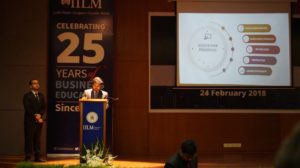
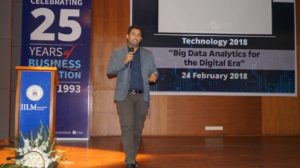
The evening session began with presentation by Dr. Lilia Safxi on “Thinking Big” which she presented over Skype. She focused on topics related to data issues, principles of Big Data, type and scale, big data security and other trends.
Prof. O. Gabriel followed the theme of the conference with his presentation on “Analysis your website to acquire customers: An e-commerce perspective” his study elaborated on e-commerce, content marketing, search optimization that uses tools such as Google analytics, Webster analytics, Kiss Metrics, Web Trend analytics.
Md. Belal Akbar and Rahul Sharma were called upon next and they put forth their presentation on “Internet Marketing- A study on the acquisition processes”. The object of their study was to identify the various acquisition processes and how it can help any organization in acquiring customer on online platform through internet marketing.Next we saw a joint presentation by Gandham Kumar and Kamal Irukulla who came forward with their presentation on “Data Analytics and Information Technology are driving the present world”. Their discussion focused on the usage of cloud computing and enterprise resource planning.
The final presentation of the evening was by J Manoj Kumar who spoke on “ Customer analytics and big data analytics” His presentation entailed how predictive analysis deals with different types of statistics, techniques and lean management helping organization in today’s world. He concluded aptly by saying how by interpreting the data we can have a whole view of customer purchasing trends. The judges for this session were Prof. Raju Majumdar and Dr. Anuradha Konidena.
AWARD CEREMONY
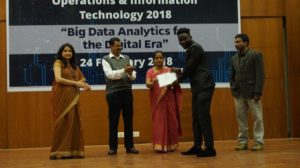
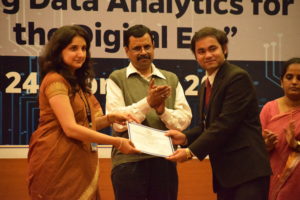
The conference came to an end with felicitation of all presenters. After much deliberation the judges awarded the best paper to Prof. O Gabriel for his paper titled “Analysis your website to acquire customers: An e-commerce perspective”. Dr. Shruti Choudhary delivered the vote of thanks to the director, all the esteemed judges, the faculty members and everyone present.

